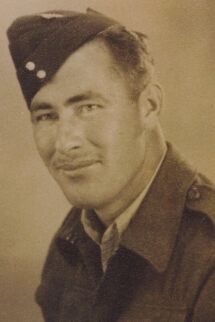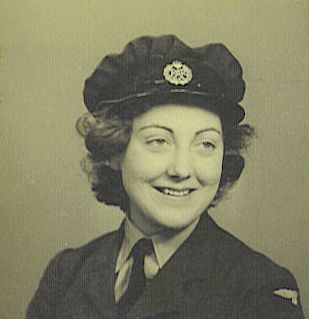|
If you stroll down a country road on a spring evening you’ll be treated to the din of ten thousand little spring peepers, each individually piping at the top of its little froggy lungs, “Pick me! Pick me! Pick me!” It’s dating season for the froggies, and this is the only pickup line they know. Crammed shoulder to shoulder, “getting lucky” means precisely that.
A mean-spirited or scientifically curious human (I’m the latter) will stamp their feet on the roadway. In a split second there is total silence-- for about seventy seconds. The little frogs, their tiny brains bathed in love hormones, soon forget about the loud noise. Before long, one tiny fellow off in a distant ditch will resurface and say, “Peeeeppp?????” Another, in a puddle in an adjoining field, emboldened by the first, will respond, “Peeeeppp!!!!” Then a third, and a fourth, until soon enough every spring peeper in the world is trying to out-peep every other spring peeper in the world. (Who am I to smirk at the froggies-- humans aren't a bit more clever at the dating game.) In our COVID-slammed world of coaching, training and speaking, so many of us have become "social media spring peepers". Entirely natural, but entirely ineffective. How can a prospect possibly choose amongst thousands of us shouting in unison “Pick me! Pick me! Pick me!”? Yes, you may be the worldwide thought-leader on the impact of tinnitus on dystopian societies, and perhaps you have five professional designations and fourteen pages of testimonials, but if the focus is on yourself, you’re wasting your time, effort and money. There’s a really simple reason for that, and we all know exactly what that is: the message is pointing in the wrong direction. As a potential consumer of your offerings, I don't care a bit about you and your magnificence until I feel that you are focused on me and my wants and my needs. Only then will I ask about your capacity to satisfy my needs and my wants. If that's how I feel about you, why should you feel any different about me? When our focused messaging demonstrates both an intellectual and emotional understanding of the specific needs of the prospective client, we can capture their attention. When it’s clear from our messaging and our outreach that we not only understand and empathize, but demonstrably can solve the issues, we will have clients. Plenty of them. Now, doesn’t that sound better than sitting in a ditch singing “Pick me! Pick me! Pick me!” ? Peeeeppp!!!!
0 Comments
I have no shame that my Dad was a member of an antifascist organization. Actually, so was my mother, and I’m equally unashamed.
Dad’s outfit was called the Canadian Army and Mum was in the British Womens’ Auxiliary Air Force. Most of their friends and relatives were antifascist, too. Uncle Harry was considered medically unfit to serve, so he spent most nights putting out fires during the bombing of Liverpool, then showed up for work in the morning. Some of my Mum and Dad’s friends lost their lives to the fascists, and many more came home with lifelong physical and emotional scars. My grandparents were antifascists, too, and although they didn’t serve in uniform, they kept up the home front, bought war bonds, knitted socks and mittens for the troops and did what they could to support the war effort. Grandad Thornton’s once prosperous business was bombed and shattered, and his health was ruined. He died not long after VE Day, as surely a victim of the fascists as anyone. After the war ended, the world learned the truth about fascism-- it was no mere political philosophy, it was the very embodiment of evil. As the death camps were laid bare, and the gas chambers and crematoria opened for the world to see, we learned of a depravity guised as racial purity. Come to think about it, I’m an antifascist, too. I’m against any notion that one class or religion or ethnicity is better than another, or that the rule of a strongman is preferable or even desirable, or that a cabal of the rich and privileged should rule as of right. I don’t believe that because you are black, or Jewish, or gay, or suffer a mental or physical challenge, you have less rights than I, in particular the right to live. Fascist rhetoric and propaganda typically targets the left, socialists and communists as all of one evil cloth. The Nazi marching hymn Horst-Wessel-Lied was a rant against the Red Front, and today’s tweets continue the chant, pretending that the choice is binary. The centrist majority is overlooked as if it isn’t there, because fascists need a bogeyman. Once the fascists take power, the center is seduced, silenced, or eliminated, which is why centrists need to speak up while they can. I’m an anti-fascist. And damned proud of it. Photo by Kevin Bidwell from Pexels Norman Bowley
This is a parable about three buddies who lived back in the seventies. They were carburetor repairmen. Because they were very good at what they did, they made an excellent living. Until, that is, electronic fuel injection came along and made automotive carburetors a thing of the past. Albert, Bob, and Charlie suddenly had a big problem-- they supplied an expensive service for which there was little demand. Albert refused to face the problem, and just kept his head down. Before long he wasn’t doing enough business to pay the rent on his big downtown shop, so he gave the landlord a chunk of money to break his lease and moved to his home garage out in the country. Fortunately his wife was a teacher, so they could make ends meet, barely. Every month it seemed a few more old beaters were taken off the road. Before long there wasn’t much for Albert to do but sit around the shop drinking beer and grousing about how foreigners had put him out of business. Bob also saw the clouds coming but saw a silver lining. Being a classic car buff, he knew several things: first, there are hundreds of thousands of treasured classic cars, lovingly restored, all of which have carburetors. Second, most classic car owners are prepared to pay really good money to have their cars run perfectly. And that involves carburetors. Third, with the majority of carburetor mechanics leaving the trade, those who remained could do quite well if they could figure out how to get the work of these free-spending classic car owners. So he re-branded himself as the Bob the Classic Carb Wizard. He bought advertising in all the classic car magazines and traveled to every trade show and classic car event he could find. Sometimes he’d leave his booth and wander, listening for the tell-tale sound of a carburetor that really just needed a little love and a little tweaking. “Hi!,” he would introduce himself to the owner, “Nice car! I’m Bob the Classic Carb Wizard. You’re running a little rich on the front left throat-- mind if I take a look? No charge.” Five minutes later Bob left the ecstatic owner with a melodious carburetor, his card and a handful of brochures. An early adopter of courier services, Bob offered a ten day turnaround on rebuilds, and before long also began to distribute some very expensive, very high end, and very high-profit specialized carburetors. He became so busy he even thought about hiring Albert, but decided that Albert’s sourpuss attitude would not be good for business. Lastly, Charlie took still a different tack. Charlie asked himself a very important, very existential question, “What is it that I really do and love to do?” He also asked his wife, his best friends, and his best customers the same question, and came to the realization that he wasn’t just a carburetor mechanic, but he was a guy who had exceptional instincts about how things worked and why they worked and why they didn’t work and how to get them working better than ever. Toasters, cameras, clocks and garden tractors -- it didn’t matter what he touched, when Charlie was finished, they ran better than when they had come out of the factory. He just had a golden touch. As it happened, Charlie’s cousin David owned a small manufacturing company, and as it also happened, David’s assembly line gave him constant grief. So Charlie, finding himself with plenty of time on his hands, offered to make the line behave properly, saying to David, “If I can’t fix it, you pay nothing, and if I can fix it, you pay me what you think it’s worth.” After about a week of quizzing the workers and watching the line moan and squeal along, it was obvious to Charlie what the problem was. After all, figuring out mechanical problems was what he was born to do! And before very long, Charlie had David’s assembly line behaving itself as it had never behaved before. David was amazed and grateful, and gave Charlie a rather nice cheque. But more importantly, David bragged Charlie up to all his industry buddies, and before long Charlie’s phone began to ring and he became busy. Before long, Charlie’s reputation brought in so much work he needed to hire assistants. He even thought about hiring Albert, but remembered that Albert lacked imagination and always blamed others. So sad about Albert. You see, trends and technology never stand still, and sooner or later seismic change will come to your industry and to mine. Will we be an Albert, a Bob, or a Charlie? Norm Bowley teaches the Alignment Doctrine and the Client Code-- secrets to building the professional practice you and your clients deserve. He can be reached at norm@purposeful.ca and at 613-862-3489 |
AuthorNorman Bowley teaches the Alignment Doctrine and the Client Code-- secrets to building the professional practice you and your clients deserve. Archives
September 2020
Categories |
-
Home
- Video >
-
Communication
>
- Elements >
-
Modules
>
-
Modules A-M
>
- Avoiding amateurism
- Change: Understanding It, Facing It, Profiting From It
- Communication for Long Term Relationship
- Communications Horror Stories
- Communications that blow up in your face
- Communicating toward success
- Earning the Right to Be Heard
- Gerunds, Mesolects and Other Arcane Terms of Art
- Having a Toad Day
- Healthy Fear
- Hippos and Raccoons-- Deadly Underestimation
- How I Moved From Doing What I Liked to Doing What I Loved
- How to Be on the Same Wavelength as Your Audience
- How to Pick Up a Porcupine-- Dealing With Difficult People
- Key of Trust
- Manipulation
- Mastering the Technologies
- Mining the Subconscious
-
Modules N-Z
>
- Quick and Dirty-- the 80/20 Rule
- Sabotaging Your Message
- Scar Tissue
- Secrets of the Druids
- Some Specific Approaches to Communications
- Specific audiences
- Symbolism-- the Heart of the Communicative Process
- Talking to Yourself and Why You Should Do It
- The Difference Between Leadership and Management
- The Eyes Eat First
- The Eyes Have It
- The Lizard Within-- What Your Reptilian Brain Makes You Do
- The Media of Communication
- The Respect Deficit
- The Secret of Authenticity
- Thinking About the Kinds of English
- Websites, Blogs and Newsletters
- When you don't have time to plan
- When You'd Rather Shoot Yourself
- Who's your audience? Targeted communication.
-
Modules A-M
>
- About us >
- Norman Bowley
- FREE
- Services
- Testimonials
- Blog
- FREE
Proudly powered by Weebly





 RSS Feed
RSS Feed